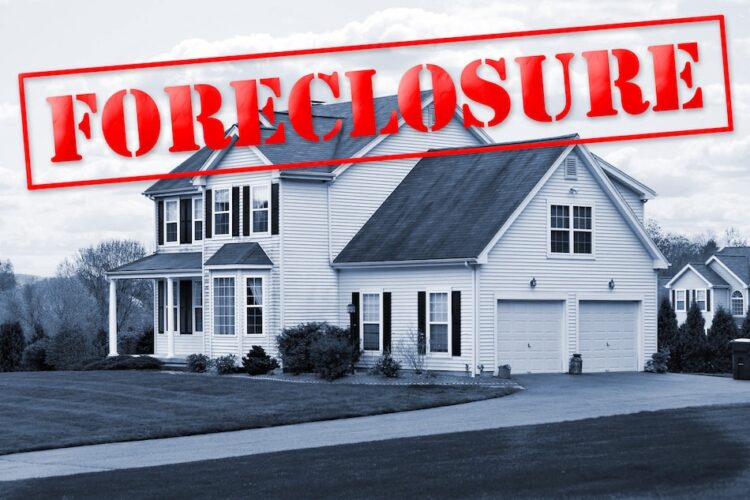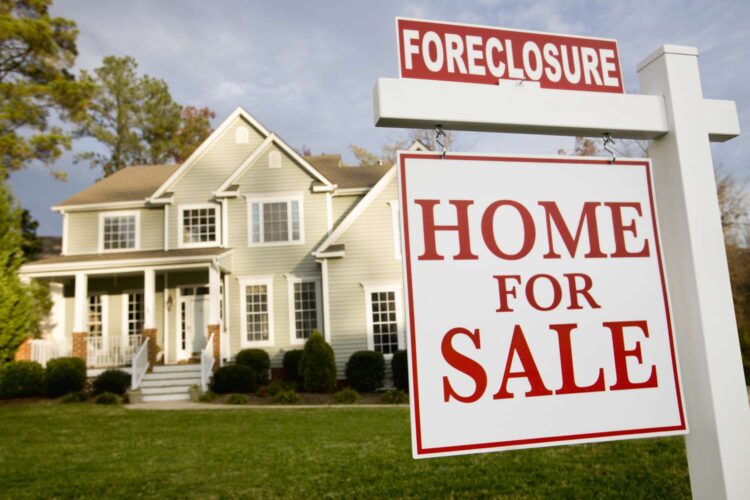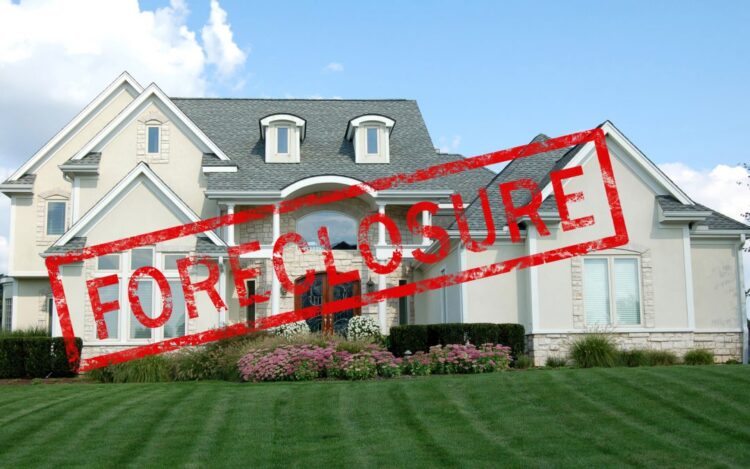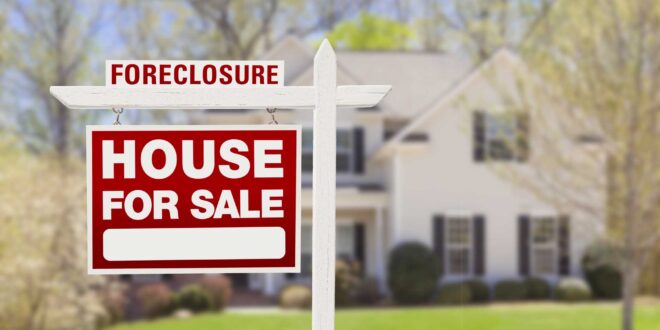As a prospective homebuyer, purchasing a foreclosure can be an attractive option.
Foreclosures typically sell at below market value and, according to real estate data company ATTOM, they’re becoming more prevalent. In September, there were 36,684 U.S. properties with foreclosure filings, up 8% from August and 15% from the same time last year. Now, foreclosure filings have nearly reached pre-pandemic levels.
But is a foreclosure home the right choice for you? Despite their low price and increasing availability, foreclosures do come with some risks. So it’s important to carefully weigh their pros and cons before investing in one.
In this article, we’ll go over what exactly a foreclosure is, the pros and cons of buying one, and where to find one. Let’s get started!
What Is a Foreclosed Home?

A foreclosure home is one that has been repossessed by the lender (or sometimes the government who backed the loan as with FHA loans) because the homeowner stopped making their mortgage payments.
This can happen for many reasons, but typically the homeowner has come under financial distress, e.g. losing their job, having an emergency, or getting divorced.
By the fourth missed payment, lenders typically send a notice of default (NOD), informing the homeowner of their intent to foreclose. Federal law prohibits lenders from officially starting the foreclosure process until the homeowner is at least 120 days past due on their payments.
At that point, the lender prepares to sell the property at public auction or have it listed through a traditional real estate agent, which is where you as a potential buyer come in.
Pros of Buying a Foreclosure Home
Buying a foreclosure home comes with the following potential benefits:
- Lower sales price – Lenders are typically motivated sellers because they want to recover their losses from the previous loan gone bad quickly. The longer the property goes unsold, the longer the bank has money tied up in an asset it can’t use (most banks don’t want to become landlords). Plus, foreclosures are often marked down for damage.
- Potential investment opportunity – Because they are often priced below market value, foreclosures can make a good investment. For example, you can buy them in distressed condition, fix them up, and then resell them for a profit. Alternatively, you can move in and work on the house while you live in it. This can save you on upfront homeownership costs and increase the property’s value when you eventually do go to sell.
- Faster sale – Since lenders tend to want to get rid of foreclosures as fast as possible, the transaction is usually faster. This is especially true if you buy the foreclosure at auction.
Cons of Buying a Foreclosure Home

Now that you know the advantages of buying a foreclosure, let’s go over the drawbacks:
- Repair costs – A foreclosure may have serious damage from long periods of vacancy or previous owners. Someone who wasn’t able to keep up with their mortgage payments probably didn’t invest much in proper maintenance either. In fact, some homeowners may deliberately damage the property to get back at the lender who is having them evicted. Consequently, repair costs are common. So it’s wise to set aside a budget to hire contractors. If they deliver poor workmanship, consult construction attorney to explore your options.
- Limited property access – Generally, foreclosures are sold as-is, and in many cases, you aren’t allowed to access the property for a home inspection. You must take it or leave it. This can make it hard to gauge the repair costs mentioned above.
- Potential liens – The property may have some liens (i.e. legal claims) on it, and you’ll be responsible for paying them before closing. For example, the previous owner may have left some utility bills or property taxes unpaid. So run a title search on the property to identify any outstanding liens and consider buying title insurance to protect yourself against any hidden liens.
Where to Find a Foreclosed Home
You can find foreclosure properties at a foreclosure auction, on a foreclosure site like foreclosure.com, or listed by traditional real estate agents on sites like Zillow.
If you choose to attend a foreclosure auction, keep in mind that most allow cash bids only. Otherwise, if the foreclosure is listed by an agent, you can usually finance the property with a mortgage the same way you can with regular homes.
The Final Verdict

At the end of the day, a foreclosure property can be a great investment opportunity. Just know the risks involved—especially as a first-time homebuyer.
Carefully weigh the pros and cons, do your due diligence, and only sign under the dotted line if you have sufficient funds to make any needed repairs and the math works. Otherwise, it’s probably better to wait.
For more guidance, consult a local real estate agent or attorney who specializes in foreclosure properties. They can help you navigate the complex real estate transaction.
 Hi Boox Popular Magazine 2024
Hi Boox Popular Magazine 2024



